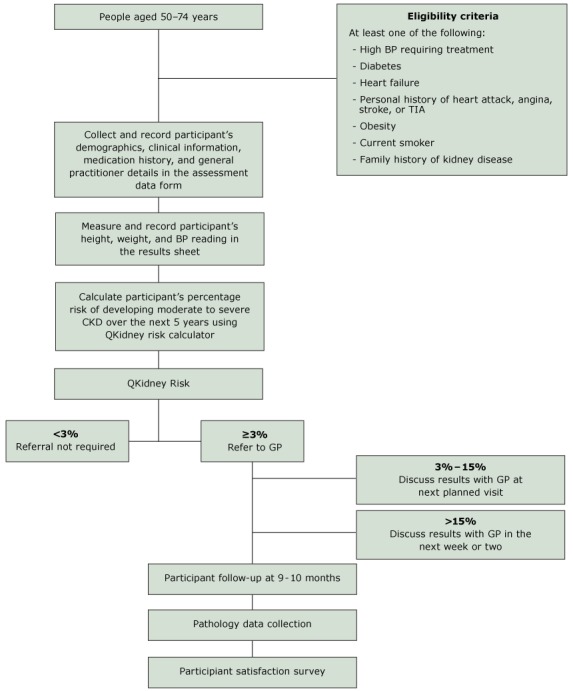Figure.

Flow diagram for chronic kidney disease risk assessment protocol.
Abbreviations: BP, blood pressure; CKD, chronic kidney disease; GP, general practitioner; TIA, transient ischemic attack.

Flow diagram for chronic kidney disease risk assessment protocol.
Abbreviations: BP, blood pressure; CKD, chronic kidney disease; GP, general practitioner; TIA, transient ischemic attack.